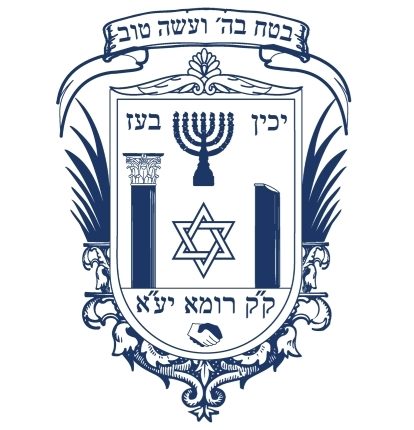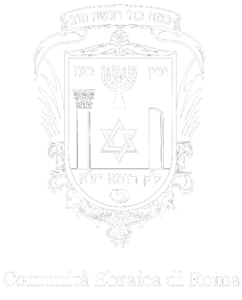Educational Department Youth Office
The Youth Office is a Non-Formal Education agency which operates within the Jewish Community of Rome. It is a vital resource not only for the growth, but also for the social, emotional and intellectual development of the individual.
The decision to create an educational department, rather than a leisure center was determined by this consideration and by the desire not to make it subject to trends, as it often happens with projects that have the exclusive purpose of promoting social exchanges and interactions.
The aim is also to provide continuous support and respond to the information, orientation and training needs of users. Otherwise, it would be difficult to respond to all these requests ,different in terms of interests, age, as well as cultural and social origins within a single place.
We respond to these needs by developing our office as a supporting structure and strengthening our roots in the area, providing young people and those engaged in non-formal or formal educational contexts with a progressively more reliable service.
Staff trained in the socio-educational field and directly involved in specific intervention sectors operates within the Educational Department Youth Office.
In particular, the Educational Department Youth Office manages daily work dealing with:
Design and planning
Planning and management of recreational and educational areas and services aimed at children, pre-teens and teens, which are conceived and organized to be flexible and able to adapt to different needs over time.
The realization of these projects aspire to spread Jewish culture and identity and, at the same time, to support integration and the development of new relationships.
Children and teenagers are the real protagonists of the proposed activities, which are in constant evolution and subject to change both by the creators of the initiatives and by the users themselves.
The various professionals involved are moved by the belief that for the development of our own personality, and the affirmation of the self, the child or the young person, everyone must live in a supportive and welcoming environment and be allowed to experience it materially and emotionally.
Behaviour observation
The recreational and educational activities, which take place within our projects, give the possibility of observing a vast field of attitudes that are particularly relevant, precisely because they arise in a spontaneous context.
Observation in such circumstances can provide an insight into the needs and potential discomforts of the participants.
Our goal is to stimulate young people integration, adapted to their needs and to guide educators in their interaction and in proposing the most effective activities.
Monitoring and evaluation
The monitoring process of the services aimed at children, pre-teens, teens and families is aimed at verifying the achievement of the objectives and at verifying the progress of the service, both from a quantitative and qualitative point of view.
Parental counselling
Counselling addressed to families, within the the projects, in both moments of effectiveness or difficulty in the parent-children relationship: receiving feedback on the internal dynamics observed by the educators within the activities in which their children or kids are involved, helps parents to focus on areas to be strengthened in their relationships.
In addition to having individual counselling, parents have the opportunity to discuss in groups with other parents, and to develop active participation.
Working staff supervision
Educators’ work is supported by an action strategy, based on direct observation of the relationship between themselves and both the group and the organizational context.
Staff is supervised in groups through weekly meetings, held in order to favor their work as a result of the contribution and resources of each member.
This facilitates the easing of emotional tensions, which inevitably emerge in the relationship with users and staff members.
Training
Organization of training courses aimed at young animators and educators, who can be employed in youth movements, in educational contexts, in temples, etc. with a broad and complete preparation.
Courses deal with various topics, trying to stimulate curiosity and favoring peers exchange of ideas; this is an opportunity for individual growth, developed in a group, which enriches one’s personality, through an experiential approach and develops knowledge for those who undertake the journey.
In this way we lay the foundations for the training of competent educators, who will guarantee the community the growth of future activists and the spread of a Jewish identity and education.
- Educational Department Youth Office
- Director: Martina Terracina
- Lungotevere Sanzio, 14 – 00153 Roma
- 06 87450210-09
- dipartimentoeducativo@ufficiogiovani.it


